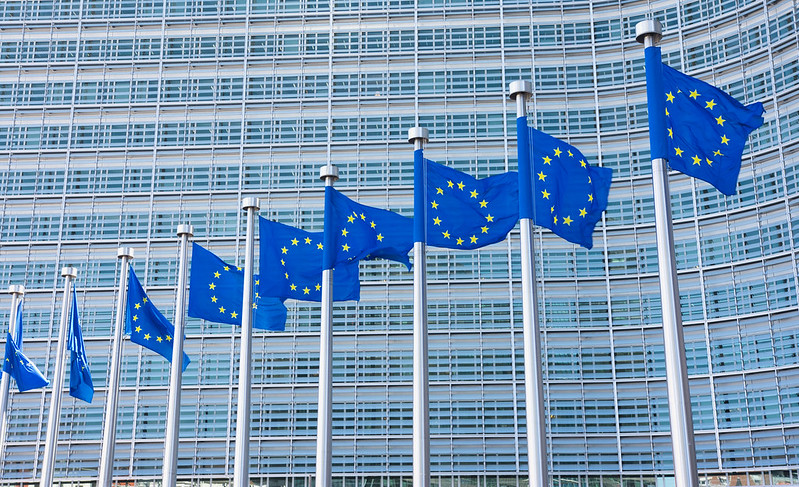Latest News
Member of European Parliament Calls for Europe to Assess Non-Starlink Satcom Solutions

European Union flags outside of the EU headquarters Berlaymont building in Brussels, Belgium. Photo: Kyle Wagaman via Flickr, Creative Commons license
A member of the European Parliament is calling for Europe to assess how European satcom solutions can serve as alternatives to Starlink connectivity in Ukraine.
This comes after Reuters reported over the weekend that U.S. negotiators raised the possibility of cutting Ukraine’s access to SpaceX-owned Starlink internet if a deal was not reached on access to Ukraine’s critical minerals.
SpaceX founder Elon Musk claimed in a statement on X that Reuters’ reporting was false.
Christophe Grudler, a French politician and a Member of the European Parliament, sent a letter to the European Commission on Monday calling for an assessment of alternative satcom solutions.
“This unacceptable act of blackmail raises serious concerns about the reliance on non-EU satellites,” Grudler wrote. I urge the European Commission to take immediate action to assess all possible alternative satellite solutions that the EU could offer Ukraine should this threat materialize.”
He particularly highlighted the EU’s satcom pooling system, Governmental Satellite Communications (Govsatcom), which is supposed to be available later this year. He also questioned if the EU or Member States can finance European satellite services as an alternative.
“This situation highlights the critical importance of reducing our dependence on non-European providers for essential technologies,” Grudler wrote.” This is precisely why we negotiated and adopted IRIS².”
IRIS² is set to be Europe’s third flagship space program after Galileo and Copernicus, and the plan involves a constellation of 290 satellites,18 in Medium-Earth Orbit (MEO) and 264 in Low-Earth (LEO), to provide secure connectivity services to the EU and its Member States, along with broadband connectivity. European satellite operators Eutelsat, Hispasat, and SES are leading the consortium for the project.
Stay connected and get ahead with the leading source of industry intel!
Subscribe Now